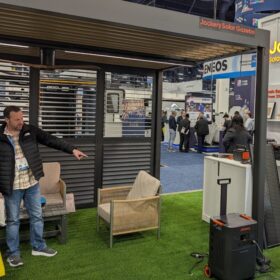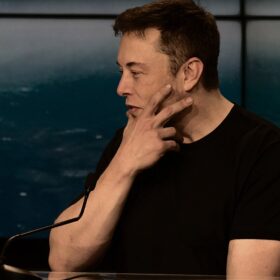Sunrise brief: U.S. sets antidumping duties for Southeast Asian solar cells
Also on the rise: The launch of a new renewable energy investment bank. New York state’s self-developed 3.5 GW portfolio under due diligence. And more.
The launch of a new renewable energy investment bank
Catalina Energy Capital reports it has three significant solar and battery energy storage infrastructure deals complete and is on track to advise on over 4 GW of solar and storage assets by the end of this year.
GameChange Solar releases solar tracker topography design tool
The new TopoSmart+ software enables users to find the most cost-effective topography and design plan to install the company’s Genius Tracker solar mounts at a given location.
Air Energy launches to bring solid-state lithium-air batteries closer to commercialization
While some may call it a fairytale chemistry, solid-state lithium-air battery (SS-LAB) technology is now a step closer to commercial reality with the foundation of Air Energy. The startup has set out to scale the application of this promising technology over the next five years.
SolarEdge launches mobile app for residential, C&I solar installers
The company’s new mobile app is designed to combine all operations for solar installers, from installations and commissioning to management and servicing, in one streamlined platform.
North America faces cloudy November with few brights for solar
In a new weekly update for pv magazine, Solcast, a DNV company, reports that November proved challenging for solar energy across most of the US and Canada, as persistent cloud cover reduced solar irradiance.
Solar wafer prices stable, potential price hikes loom amid trade policy changes
In a new weekly update for pv magazine, OPIS, a Dow Jones company, provides a quick look at the main price trends in the global PV industry.
U.S. sets antidumping duties for Southeast Asian solar cells
U.S. trade officials have announced preliminary affirmative determinations for antidumping duties on crystalline solar cell imports from Cambodia, Malaysia, Thailand and Vietnam. The tariffs range from 21.31% to 271.28% depending on the company and country.
New York state’s self-developed 3.5 GW portfolio under due diligence
Under pressure to achieve its 100% clean energy goals by 2040, the NYPA, operating under enhanced authority granted in 2023, is advancing its first 40 self-developed clean energy projects.
Sunrise brief: SolarEdge announces closure of its energy storage division
Also on the rise: LCOE not correct optimization parameter of PV plants, say researchers. The great grid transition in the age of data centers and EVs. And more.













